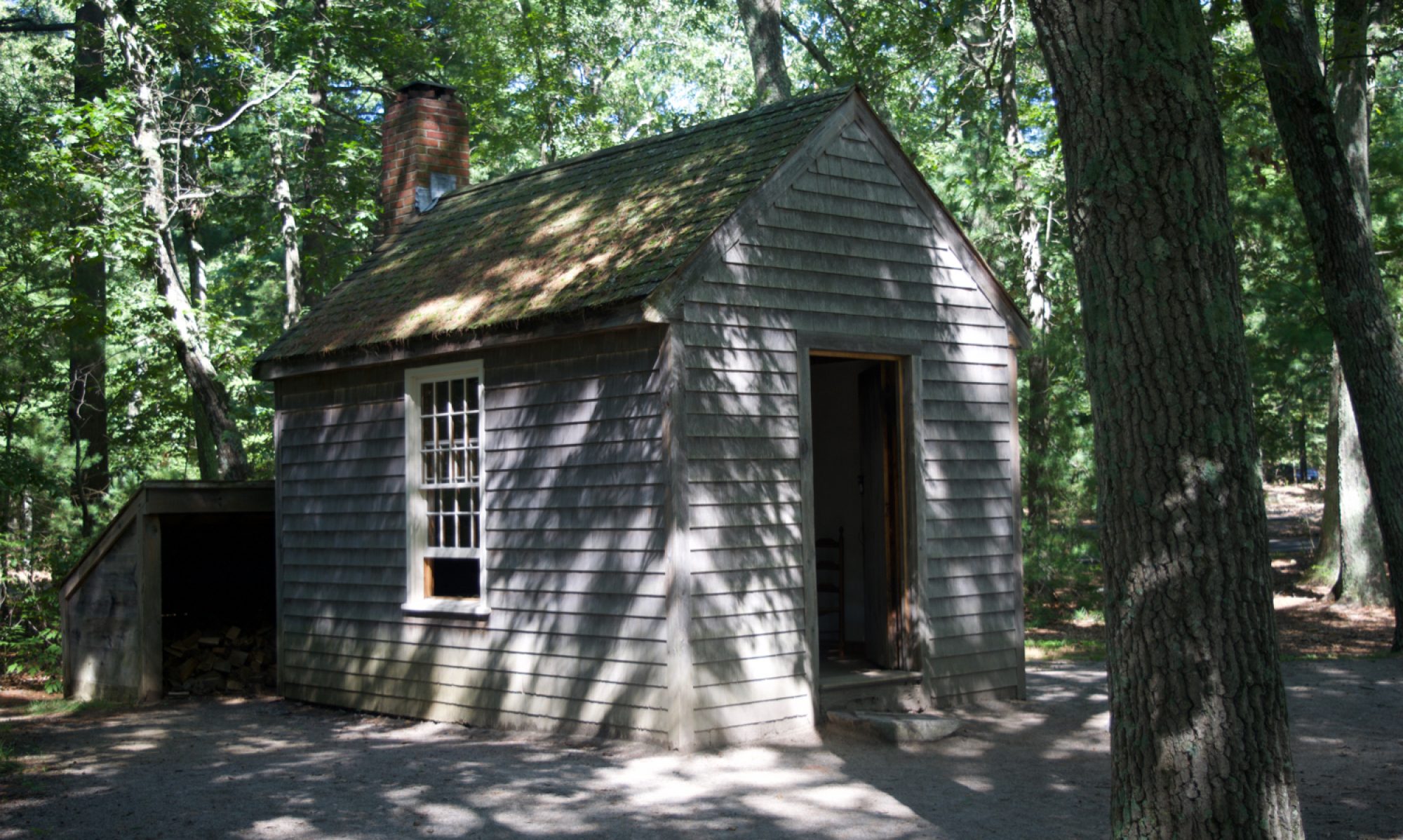Once upon a time, people across Britain had the freedom to build a weekend hut or a cabin-in-the-woods on land they rented or bought for a few pounds. All that changed in 1948 with the Town and Country Planning Acts. In Scotland, there is a growing movement to get some of that freedom back. How can we do the same in England and Wales? I think the first step is to start with cabins-in-the-woods and “Woodland Hutting”.

“Woodland Hutting” involves a hut or cabin-in-the-woods which satisfies the following conditions:
- It is built within plantation woodland or in accordance with a management plan which protects an Ancient Woodland site.
- It is not visible from outside the wood, or if in new woodland, it will not be visible when the wood matures.
- It is largely built of renewable materials, especially timber.
- It has no formal foundations and can be removed leaving little or no trace.
- It has an internal floor area of about 30m2 or less.
- It is owned and primarily occupied by the same individual or family, whose primary residence is elsewhere.
These conditions are designed to address concerns about ecological damage and impact on the local environment and neighbours.
Read more on the Hutters.uk page about Woodland Hutting, which covers legal routes for increased hutting, finding land, and next steps.


Love the ‘concept’, BUT, what you describe has to overcome the ‘flaws’ (lack of appreciation of the ‘real’ world, the people) within the Planning System, or more particularly the ‘Local’ Planning Authorities, and they are heavily influenced by history, land ‘ownership’, and NIMBY-ism…. Not being too fainthearted though there are lots of ‘settlements'(!) similar to what you describe and they’re the ‘Chalet Parks’. Similar to which many ‘Hutting sites’, due to the exigencies of ‘Planning’, are being built as, regimented, restrictive by build design and construction, lack of innovation permitted….. Huts are HUTs and as such should be, however it is only those ‘wealthy’ enough that can afford to buy land, even pay the rentals in many cases, and many build ‘huts’ (!) costing 10-15-20-k £s and upwards…..i.e. Chalets………………………………………….I am lucky enough to have been ‘living the dream’ for 50+years. I have a HUT.(Scotland)
These seem reasonable conditions in principle, except for the last stipulating that the primary residence must be elsewhere. Surely, allowing people wealthy enough to build huts as second homes where they fancy is a risk to the environment and open to abuse, whereas allowing the hut to be the primary home could offer an option for affordable homes and would encourage greater care. The whole proposal, however, is predicated on these conditions being robustly regulated. Unfortunately, existing planning and environmental regulations are no longer adequately enforced, and the forthcoming planning system changes are going to make this even worse.
@andhowe:
People with plenty of money can already buy second homes. The revival of hutting is starting to widen access to second homes in the countryside so you don’t need to be able to afford a conventional house or cottage. We need to get away from the idea that second homes are “sinful” things rich families have.
Primary homes are a separate issue, as I noted in the “Comparison with full time residence” section of the page on the website: “Whether to make a proposal that allows or that forbids primary residence really depends on what people’s objectives are and, realistically, what concerns a local community and council may have. Woodland Hutting provides a framework for people who will maintain their primary residence elsewhere.”
Why do you think the zone based planning system will weaken enforcement? If anything, it will free up staff to spend time on enforcement rather than approvals because it will be clearer what should be allowed in that area from the start.
The requirement to have a primary home elsewhere was partly chosen because it can be enforced using existing local government records (council tax register and electoral roll) rather than something as hard to monitor as whether someone camps on site for more than 28 days per year, for instance.